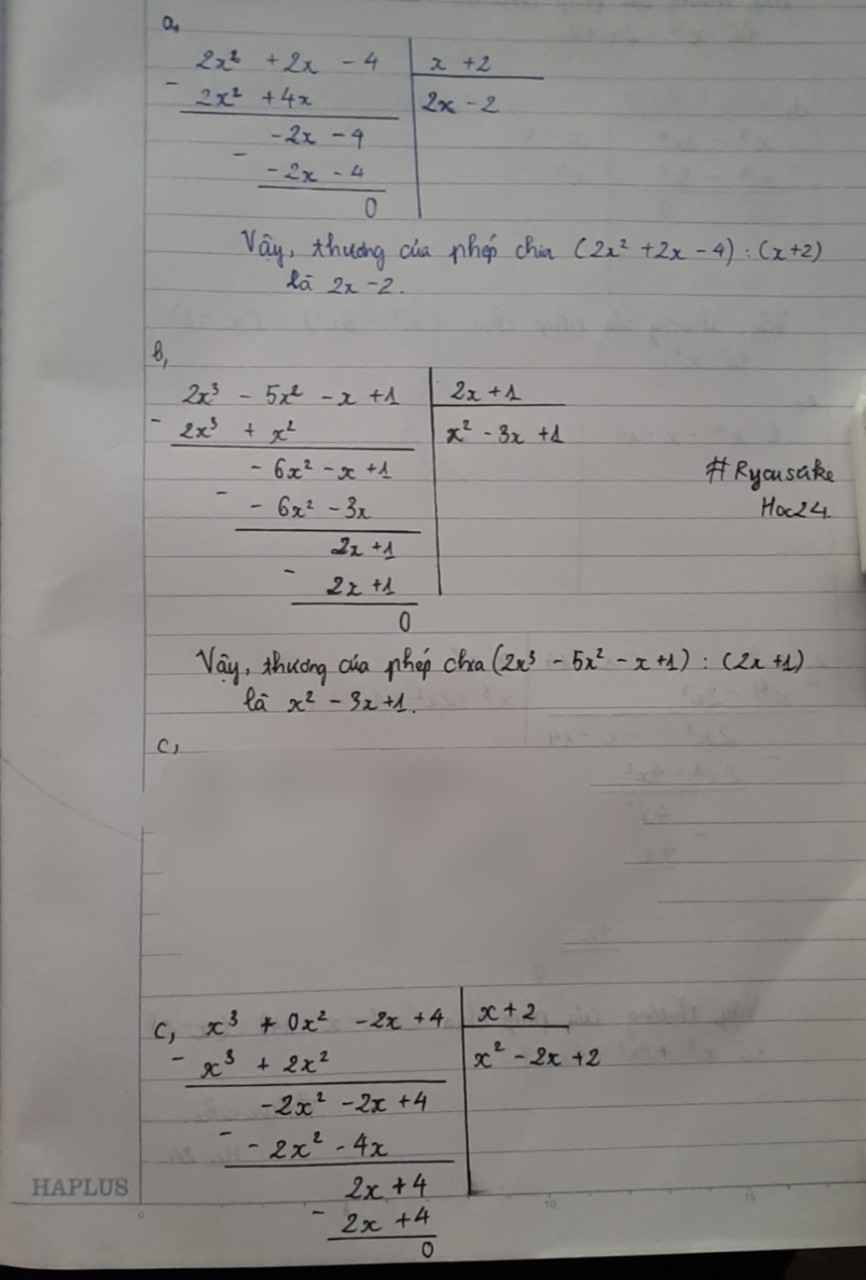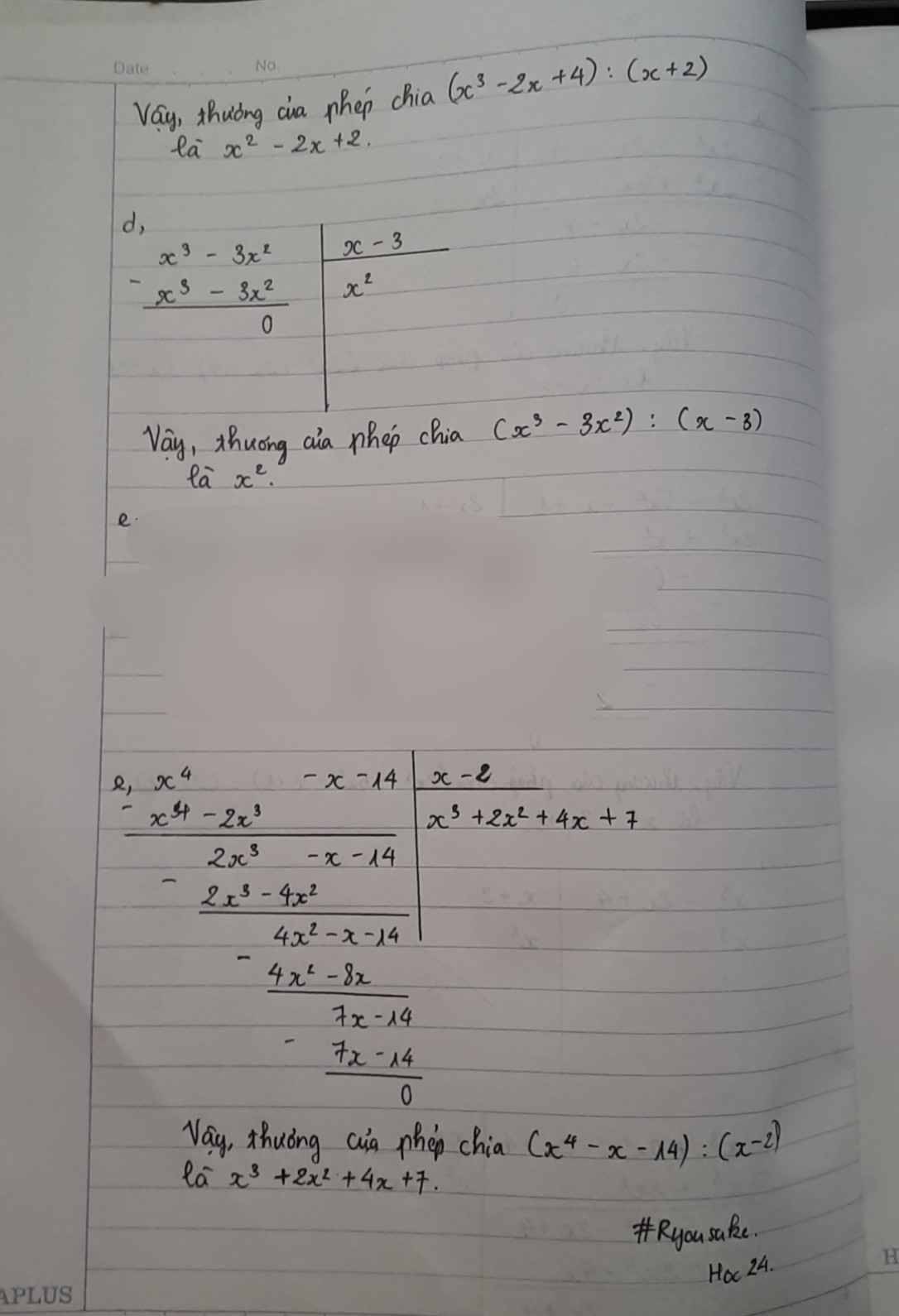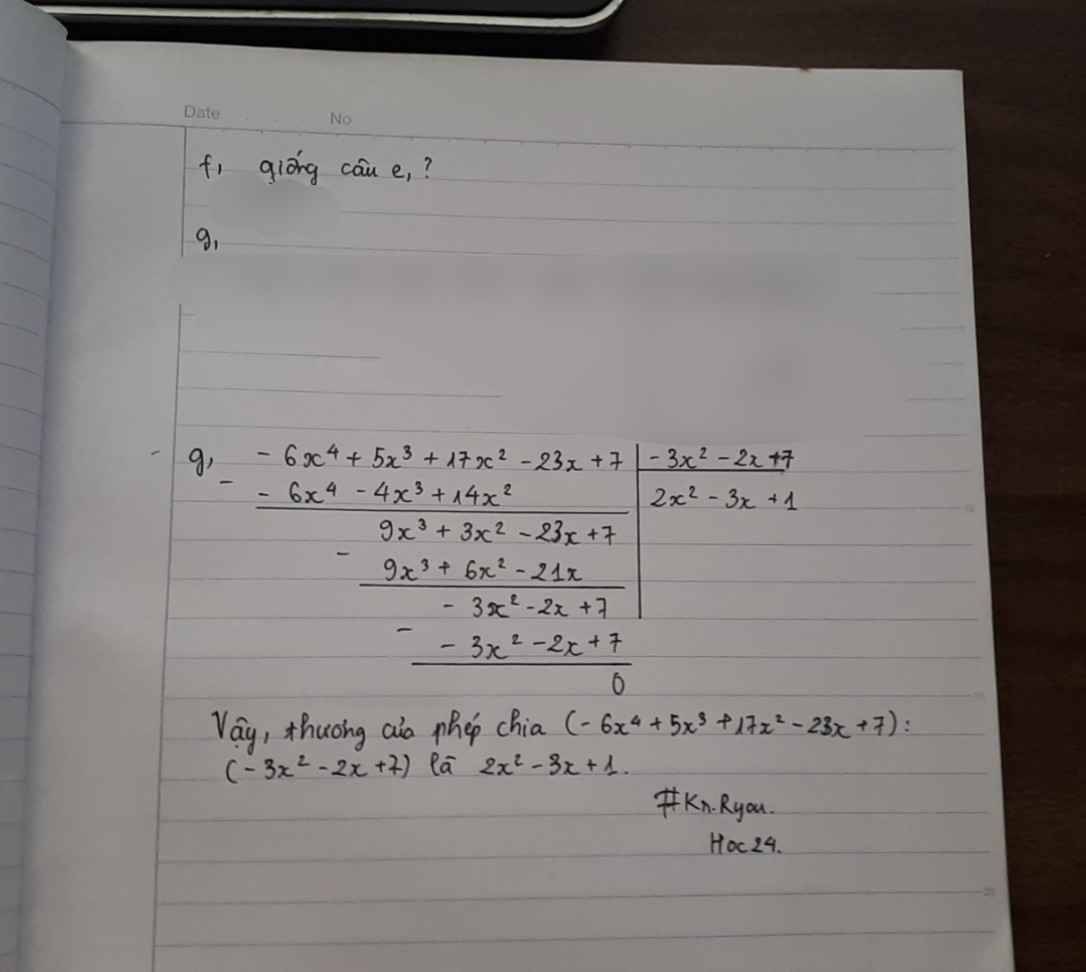6x- 7, 2x= -14, 4
Hãy nhập câu hỏi của bạn vào đây, nếu là tài khoản VIP, bạn sẽ được ưu tiên trả lời.



\(VT=\sqrt{3\left(x+1\right)^2+4}+\sqrt{5\left(x+1\right)^2+9}\ge\sqrt{4}+\sqrt{9}=5\)
\(VP=5-\left(x+1\right)^2\le5\)
Đẳng thức xảy ra khi và chỉ khi:
\(\left(x+1\right)^2=0\Leftrightarrow x=-1\)

ĐKXĐ: \(x\in R\)
\(\sqrt{3x^2+6x+7}+\sqrt{5x^2+10x+14}=4-2x-x^2\)
=>\(\sqrt{3x^2+6x+7}+\sqrt{5x^2+10x+14}+x^2+2x-4=0\)
\(\Leftrightarrow\sqrt{3x^2+6x+7}+\sqrt{5x^2+10x+14}+x^2+2x+1-5=0\)
=>\(\sqrt{3x^2+6x+7}-2+\sqrt{5x^2+10x+14}-3+\left(x+1\right)^2=0\)
=>\(\dfrac{3x^2+6x+7-4}{\sqrt{3x^2+6x+7}+2}+\dfrac{5x^2+10x+14-9}{\sqrt{5x^2+10x+14}+3}+\left(x+1\right)^2=0\)
=>
\(\dfrac{3x^2+6x+3}{\sqrt{3x^2+6x+7}+2}+\dfrac{5x^2+10x+5}{\sqrt{5x^2+10x+14}+3}+\left(x+1\right)^2=0\)
=>\(\dfrac{3\left(x^2+2x+1\right)}{\sqrt{3x^2+6x+7}+2}+\dfrac{5\left(x^2+2x+1\right)}{\sqrt{5x^2+10x+14}+3}+\left(x+1\right)^2=0\)
\(\Leftrightarrow\dfrac{3\left(x+1\right)^2}{\sqrt{3x^2+6x+7}+2}+\dfrac{5\left(x+1\right)^2}{\sqrt{5x^2+10x+14}+3}+\left(x+1\right)^2=0\)
=>\(\left(x+1\right)^2\left(\dfrac{3}{\sqrt{3x^2+6x+7}+2}+\dfrac{5}{\sqrt{5x^2+10x+14}+3}+1\right)=0\)
=>\(\left(x+1\right)^2=0\)
=>x+1=0
=>x=-1(nhận)

a: \(=\dfrac{2\left(x+2\right)\left(x-1\right)}{x+2}=2x-2\)
b: \(=\dfrac{2x^3+x^2-6x^2-3x+2x+1}{2x+1}=x^2-3x+1\)
c: \(=\dfrac{x^3+2x^2-2x^2-4x+2x+4}{x+2}=x^2-2x+2\)
d: \(=\dfrac{x^2\left(x-3\right)}{x-3}=x^2\)

a) \(2x\left(3x+1\right)+3x\left(4-2x\right)=7\)
\(\Rightarrow6x^2+2x+12x-6x^2=7\)
\(\Rightarrow14x=7\Rightarrow x=\frac{1}{2}\)
b) \(4\left(18-5x\right)-12\left(3x-7\right)=15\left(2x-16\right)-6\left(x+14\right)\)
\(72-20x-36x+84=30x-240-6x-84\)
\(\Rightarrow-20x-36x-30x+6x=-240-84-72-84\)
\(-80x=-480\)
x = 6
c) \(\left(3x+2\right).\left(2x+9\right)-\left(x+2\right).\left(6x+1\right)=\left(x+1\right)-\left(x-6\right)\)
\(\Rightarrow6x^2+4x+27x+18-6x^2-12x-x-2=x+1-x+6\) ( chỗ này bn tự phân tích ik nha, mk chỉ đưa ra kp sau khi phân tích thôi, ko thì viết ra dài lắm)
\(\Rightarrow18x+16=7\)
18x = -9
x = -2
18x =

\(\dfrac{x}{3}=\dfrac{y}{4}\)
Ta có: \(\dfrac{x}{3}=\dfrac{y}{4}=\dfrac{x+y}{3+4}=\dfrac{14}{7}\)=2
* \(\dfrac{x}{3}=2=>x=6\)
*\(\dfrac{y}{4}=2=>y=8\)
Vậy( x, y) ∈{ 6, 8}
Kiểm tra lại nhaa

Ta có : VT = \(\sqrt{3\left(x+1\right)^2+4}+\sqrt{5\left(x+1\right)^2+9}\ge\sqrt{4}+\sqrt{9}=5\)
VP=5-(x+1)^2 \(\le\) 5
Đẳng thức xảy ra khi hai vế cùng bằng 5
Khi đó (x+1)^2 =0
Suy ra x=-1

a: \(\Leftrightarrow6x^2+2x+12x-6x^2=7\)
=>14x=7
hay x=1/2
b: \(\Leftrightarrow72-20x-36x+84=30x-240-6x-84\)
=>-56x+156=24x-324
=>-80x=-480
hay x=6
c: \(\Leftrightarrow6x^2+27x+4x+18-6x^2-x-12x-2=x+1-x+6=7\)
=>18x+16=7
=>18x=-9
hay x=-1/2

Ta có : \(\sqrt{3x^2+6x+7}+\sqrt{5x^2+10x+14}=-x^2-2x+4\)
- Trước hết ta xét xem \(f\left(x\right)=-x^2-2x+4\) là hàm số đồng biến hay nghịch biến.
Xét \(x_1< x_2< -1\), khi đó : \(f\left(x_1\right)-f\left(x_2\right)=-x_1^2-2x_1+4+x_2^2+2x_2-4=\left(x_2-x_1\right)\left(x_2+x_1+2\right)< 0\)
\(\Rightarrow f\left(x_1\right)< f\left(x_2\right)\). Vậy f(x) đồng biến với mọi \(x< -1\)
Tương tự ta chứng minh được :
- f(x) nghịch biến với mọi x > -1
- \(f'\left(x\right)=\sqrt{3x^2+6x+7}+\sqrt{5x^2+10x+14}\) đồng biến với mọi x > -1
- \(f'\left(x\right)=\sqrt{3x^2+6x+7}+\sqrt{5x^2+10x+14}\) nghịch biến với mọi x < -1
+ Với x = -1 thì VT = VP => là nghiệm của pt trên
+ Với x < -1 thì do \(f'\left(x\right)\) nghịch biến nên VT > 5 , \(f\left(x\right)\) đồng biến nên VP < 5 => vô lí
+ Với x > -1 thì do \(f'\left(x\right)\) đồng biến nên VT > 5 , \(f\left(x\right)\)nghịch biến nên VP < 5 => vô lí
Vậy x = -1 là nghiệm duy nhất của phương trình.
Ta có
\(\sqrt{3x^2+6x+7}=\sqrt{3\left(x+1\right)^2+4}\ge2\)
\(\sqrt{5x^2+10x+14}=\sqrt{5\left(x+1\right)^2+9}\ge3\)
4 - 2x - x2 = 5 - (x + 1)2 \(\le5\)
Ta có VT \(\ge5\);VP \(\le\)5
Nên dấu bằng xảy ra khi x = - 1



\(6x-7,2x=-14,4\)
\(\Leftrightarrow-1,2x=-14,4\)
\(\Leftrightarrow x=12\)
Vậy x = 12
x.(6-7,2)=-14,4
x.-1,2=-14,
4x=-14,4:-1,2
x=12